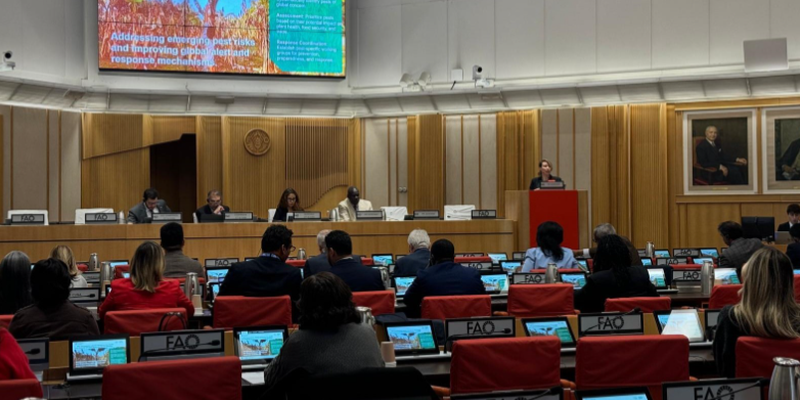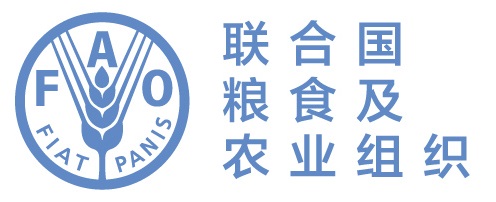倡导植物健康对“同一健康”的贡献:IPPC秘书处与“77国集团和中国”展开交流
Posted on Mon, 25 Nov 2024, 11:59

©粮农组织/Rokhila Madaminova
罗马,2024年11月22日。 应“77国集团(G77)和中国”罗马分部邀请,国际植物保护公约(下称“IPPC”)秘书处与77国集团成员举行了一场关于植物健康在“同一健康”框架中重要性的宣传会议。秘书处在演讲中强调了健康植物对人类、动物和环境福祉的重要性。由于人类、动物和环境健康风险息息相关,植物健康对于“同一健康”框架至关重要。
植物提供了我们呼吸所需氧气的约98%,供应了我们食物的约80%,并且是动物饲料的主要来源。对抗微生物药物耐药性(AMR)等健康风险进行提前预判和防控管理对于确保食品安全生产至关重要,有助于维持人类、动物和环境的健康。
IPPC秘书处日常事务负责人Arop Deng强调了IPPC的核心使命,即保护全球植物、农业体系和自然资源免受植物有害生物的破坏性影响,从而保障全球植物健康。有害生物每年导致约40%的作物损失,影响粮食和饲料安全。他表示:“在‘同一健康’框架下,我们每个人都有责任发挥作用。必须优先考虑植物健康,这一点显而易见。”
“77国集团和中国”是由134个发展中国家组成的联盟,旨在加强集体经济利益和国际经济合作。其罗马分部致力于应对联合国驻罗马机构——粮农组织、国际农业发展基金和世界粮食计划署——工作涉及的议题,如粮食安全、营养和农业发展。
IPPC秘书处标准实施与促进组组长Sarah Brunel重点介绍了IPPC为实现“同一健康”所做的一些工作。IPPC制定并支持各国实施国际植物检疫措施标准(ISPM),各国利用这些标准保护植物健康,尤其在植物跨国运输的情况下。植物检疫能力评估(PCE)作为“同一健康”工具,帮助各国评估其植物健康系统并引入必要的改革。Sarah Brunel表示:“IPPC的各项创新举措,包括全球有害生物预警机制——‘全球有害生物灾情预警和响应系统’ (POARS),承担着‘全球瞭望塔’的功能,有助于及早发现有害生物疫情,而ePhyto解决方案则促进了植物检疫证书的数字化,使贸易更加安全,降低了植物和人类健康风险。”
她还重点介绍了一项即将推出的IPPC倡议——“植物健康校园”,该平台将提供有关各类植检问题的综合培训计划,并向全球植物健康专家免费开放,以持续提升相关人员的能力。
会议还聚焦了一些全球植物健康的关键挑战,如香蕉镰刀菌枯萎病热带4号生理小种(镰刀菌TR4)和抗微生物药物耐药性(AMR)。IPPC秘书处致力于支持各缔约方制定明智的决策和政策,以预防管理与植物健康有关的抗微生物药物耐药性(AMR)风险。IPPC目前正通过IPPC观察系统开展一项调查,收集各国在植物健康中使用抗生素和杀真菌剂产品的信息。“77国集团和中国”成员对IPPC的努力表示赞赏,并就扩大“同一健康”框架、进一步支持发展中国家以及促进伙伴关系提出了相关问题。
“77国集团和中国”主席Khalid Mehboob对IPPC秘书处的深入介绍和富有成效的讨论表示感谢。他强调,必须继续加强合作并调动资源。 部分参会成员还邀请IPPC秘书处与拉丁美洲和加勒比国家集团(GRULAC)以及亚洲地区的区域团体进一步接触,以确保在“同一健康”框架中优先考虑植物健康。

